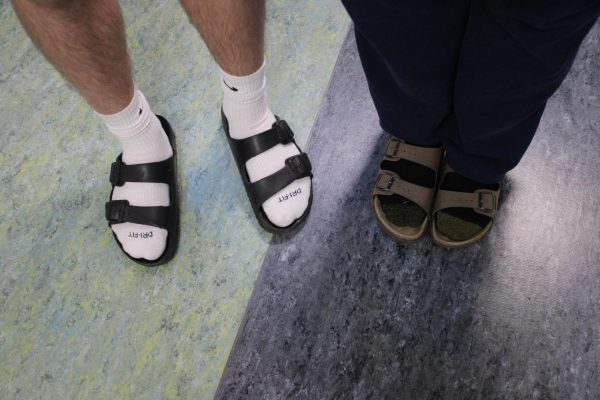Life in the Age of Coronavirus
In the late 1340’s, beginning in China, a widespread disease known as the Bubonic Plague swept the nation and spread to Europe. Also known as the Black Death, it reduced the population significantly, with an estimated 75-200 million deaths.
Nearly 700 years later, in the fall of 2019, a new virus emerged. The Coronavirus began in China and has now spread around the world. Schools have closed, many businesses have come to a stand still, and citizens in America have begun losing their lives as this deadly virus has caused mass confusion around the world.
The Coronavirus is a respiratory disease now identified as COVID-19. It originated in Wuhan, China, in December of 2019. Some believe the virus was first carried in bats and camels. Specialists believe the first contact came from Chinese citizens eating bats and other animals. The virus later mutated so it could spread from human to human.
According to the Centers for Disease Control (CDC) the symptoms of the Coronavirus begin 2-14 days after being exposed and they may include the following:
- fever
- cough
- difficulty breathing or shortness of breath
- persistent pain or pressure in the chest
- new confusion or inability to arouse
- bluish lips or face
The individuals suffering the most risk are senior citizens over the age of 60, and especially those 80 or older or those 60 and older with underlying health issues, like heart disease, diabetes, or respiratory issues. The mortality (or death) rate in this group is up to 15%. In comparison, those in their teens have a mortality rate of only .2%.
So how to avoid the virus? Here are the CDC guidelines to protect yourself and your loved ones:
Clean your hands often
Wash hands frequently with soap and water for at least 20 seconds, especially after you have been in a public place. You should also do so after blowing your nose, sneezing, or coughing. If you don’t have access to soap and water, use a hand sanitizer containing at least 60% alcohol. Cover all of your hands and rub them together until they feel dry. Do not touch your eyes, nose, or mouth with unwashed hands.
Avoid close contact
Avoid close contact with people who are sick. Distance yourself (six feet or more) between others if you must be in contact with others.
Stay home if you’re sick
This may protect others from whatever you have, as well as protect you from catching something else. If you someone you have been around recently is found to have the virus, you may want to consider self-quaranting yourself at home for 5-14 days so as not to potentially spread the virus.
Cover coughs and sneezes
When you cough or sneeze, cover your mouth and nose with several tissues or sneeze into your elbow. Throw used tissues in the trash and immediately wash your hands well or use hand sanitizer.
Clean and disinfect
Clean commonly-used surfaces (faucets, lightswitches, countertops, phones, keyboards, etc.) daily using bleach wipes or a substance designed to disinfect, like Lysol, bleach solutions, or alcohol solutions with at least 70% alcohol.
Prevention of this virus is crucial because the spread has been rapid, and there is no cure or vaccine for individuals after they become infected. Many businesses have taken precautions by only operating by drive-thru, most schools have closed for two or more weeks to limit the spread of the virus, groups such as churches have gone to only on-line services, and many nursing homes have stopped allowing visitors.
Pandemics may cause panic, but prevention and self-quarantine can lessen the impact. Individuals should be extra cautious and stay at home whenever possible. Around the world, everyone needs to do everything they can to protect themselves and others from this virus. Hopefully, if they do that, the Coronavirus will leave as fast as it arrived.
Editor’s Note: Fluvanna County High School is currently closed from March 16-27 due to a shut down ordered by the Virginia Governor Ralph Northam. We will post updates on the Fluco Beat as they become available.







